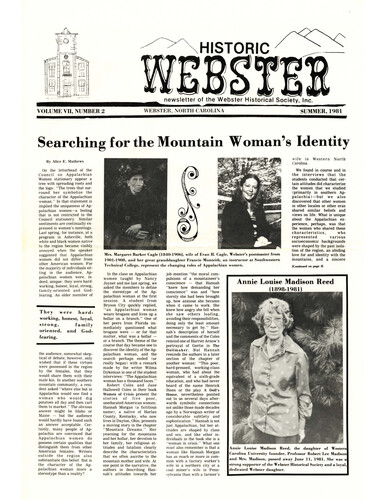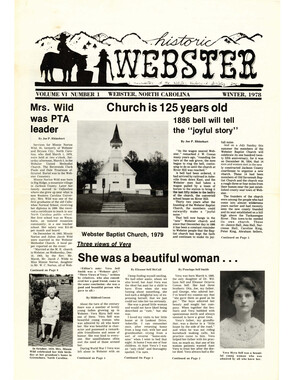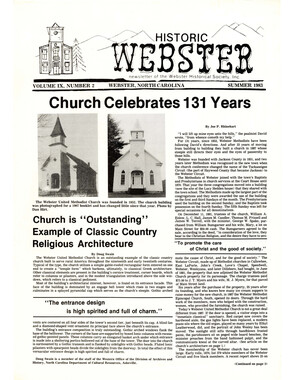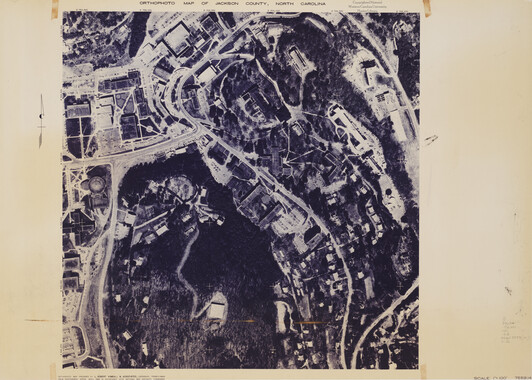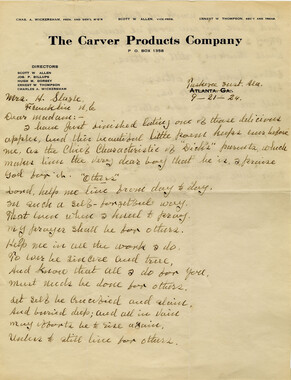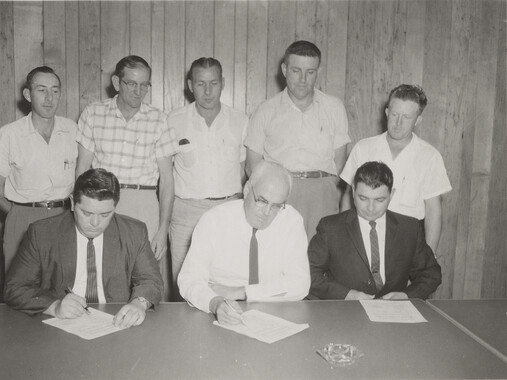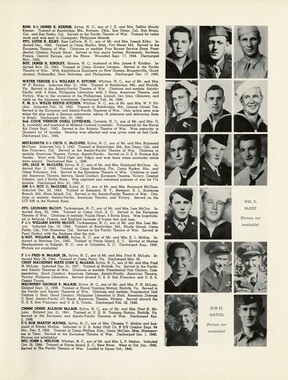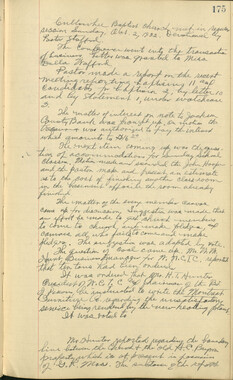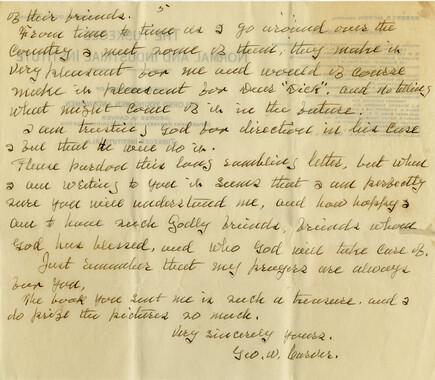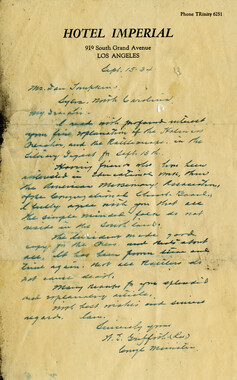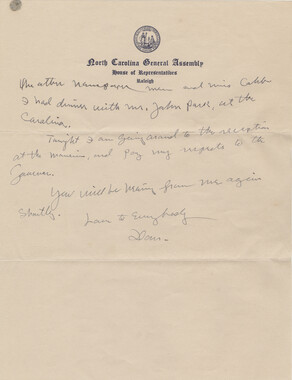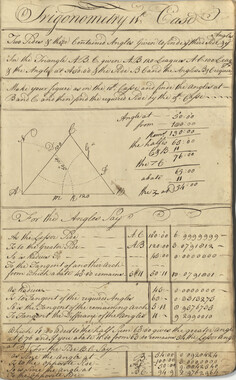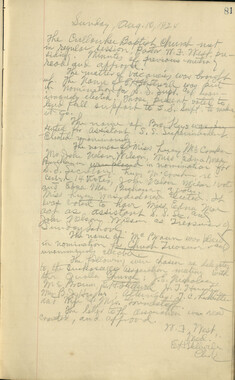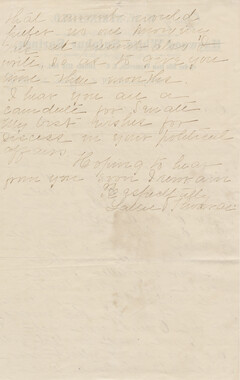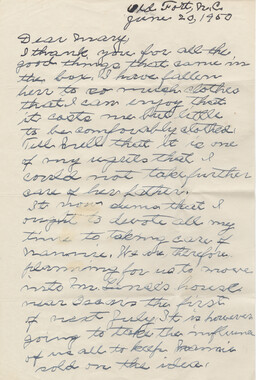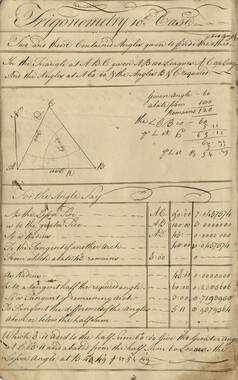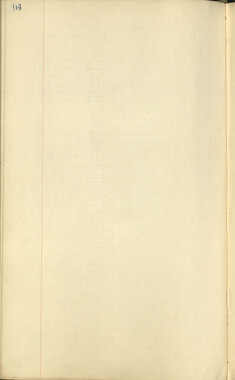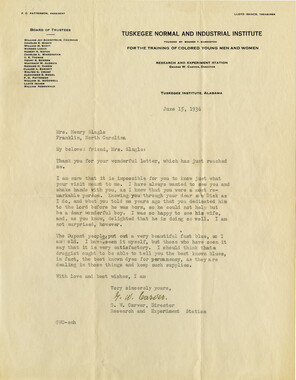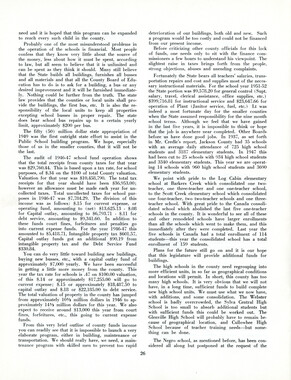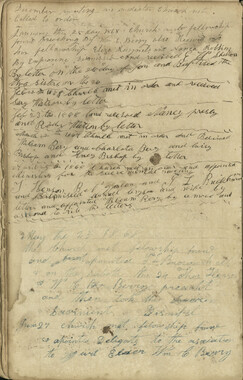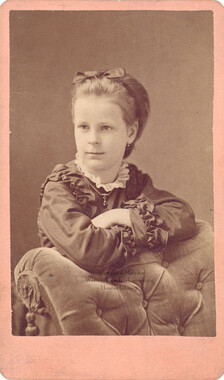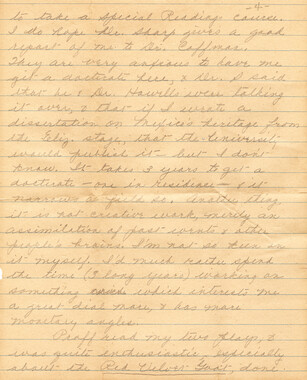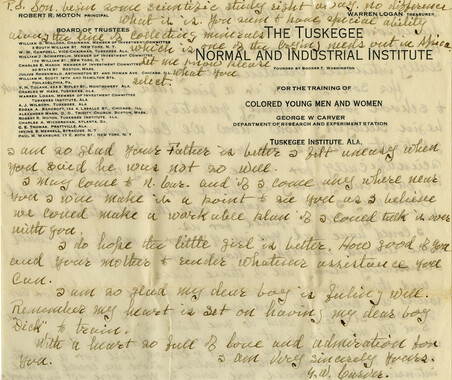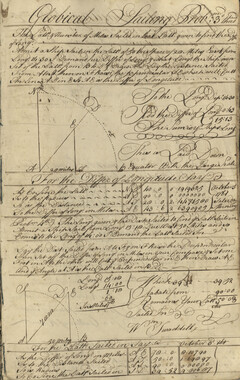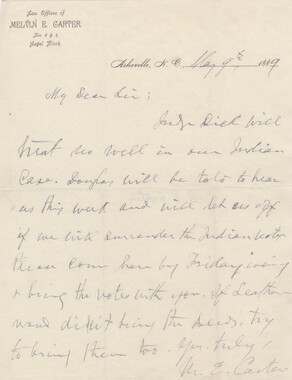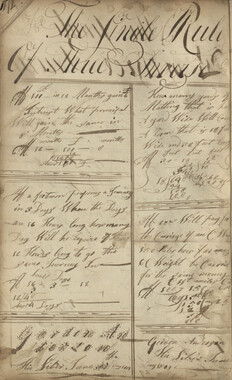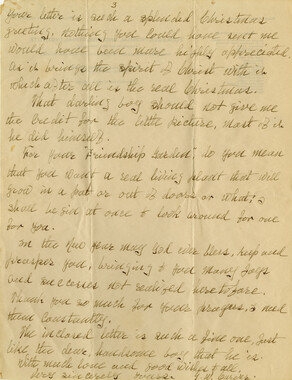Western Carolina University (20)
View all
- Canton Champion Fibre Company (2308)
- Cherokee Traditions (292)
- Civil War in Southern Appalachia (165)
- Craft Revival (1942)
- Great Smoky Mountains - A Park for America (2766)
- Highlights from Western Carolina University (430)
- Horace Kephart (941)
- Journeys Through Jackson (154)
- LGBTQIA+ Archive of Jackson County (85)
- Oral Histories of Western North Carolina (314)
- Picturing Appalachia (6772)
- Stories of Mountain Folk (413)
- Travel Western North Carolina (160)
- Western Carolina University Fine Art Museum Vitreograph Collection (129)
- Western Carolina University Herbarium (92)
- Western Carolina University: Making Memories (708)
- Western Carolina University Publications (2283)
- Western Carolina University Restricted Electronic Theses and Dissertations (146)
- Western North Carolina Regional Maps (71)
- World War II in Southern Appalachia (131)
University of North Carolina Asheville (6)
View all
- Carver, George Washington, 1864?-1943 (26)
- Masa, George, 1881-1933 (8)
- Niggli, Josephina, 1910-1983 (10)
- Whitman, Walt, 1819-1892 (10)
- Wilburn, Hiram Coleman, 1880-1967 (1)
- Allanstand Cottage Industries (0)
- Appalachian National Park Association (0)
- Bennett, Kelly, 1890-1974 (0)
- Berry, Walter (0)
- Brasstown Carvers (0)
- Cain, Doreyl Ammons (0)
- Cathey, Joseph, 1803-1874 (0)
- Champion Fibre Company (0)
- Champion Paper and Fibre Company (0)
- Cherokee Indian Fair Association (0)
- Cherokee Language Program (0)
- Crittenden, Lorraine (0)
- Crowe, Amanda (0)
- Edmonston, Thomas Benton, 1842-1907 (0)
- Ensley, A. L. (Abraham Lincoln), 1865-1948 (0)
- Fromer, Irving Rhodes, 1913-1994 (0)
- George Butz (BFS 1907) (0)
- Goodrich, Frances Louisa (0)
- Grant, George Alexander, 1891-1964 (0)
- Heard, Marian Gladys (0)
- Kephart, Calvin, 1883-1969 (0)
- Kephart, Horace, 1862-1931 (0)
- Kephart, Laura, 1862-1954 (0)
- Laney, Gideon Thomas, 1889-1976 (0)
- McElhinney, William Julian, 1896-1953 (0)
- North Carolina Park Commission (0)
- Osborne, Kezia Stradley (0)
- Owens, Samuel Robert, 1918-1995 (0)
- Penland Weavers and Potters (0)
- Rhodes, Judy (0)
- Roberts, Vivienne (0)
- Roth, Albert, 1890-1974 (0)
- Schenck, Carl Alwin, 1868-1955 (0)
- Sherrill's Photography Studio (0)
- Smith, Edward Clark (0)
- Southern Highland Handicraft Guild (0)
- Southern Highlanders, Inc. (0)
- Stalcup, Jesse Bryson (0)
- Stearns, I. K. (0)
- Thompson, James Edward, 1880-1976 (0)
- United States. Indian Arts and Crafts Board (0)
- USFS (0)
- Vance, Zebulon Baird, 1830-1894 (0)
- Weaver, Zebulon, 1872-1948 (0)
- Western Carolina College (0)
- Western Carolina Teachers College (0)
- Western Carolina University (0)
- Western Carolina University. Mountain Heritage Center (0)
- Williams, Isadora (0)
- 1700s (2)
- 1800s (13)
- 1820s (2)
- 1830s (2)
- 1840s (2)
- 1850s (4)
- 1860s (16)
- 1870s (9)
- 1880s (29)
- 1890s (9)
- 1900s (20)
- 1910s (23)
- 1920s (36)
- 1930s (38)
- 1940s (35)
- 1950s (46)
- 1960s (8)
- 1970s (27)
- 1980s (16)
- 1990s (1)
- 2000s (8)
- 1600s (0)
- 1810s (0)
- 2010s (0)
- 2020s (0)
- Appalachian Region, Southern (5)
- Buncombe County (N.C.) (10)
- Cherokee County (N.C.) (8)
- Graham County (N.C.) (11)
- Haywood County (N.C.) (9)
- Jackson County (N.C.) (151)
- Macon County (N.C.) (32)
- Madison County (N.C.) (1)
- McDowell County (N.C.) (2)
- Swain County (N.C.) (7)
- Asheville (N.C.) (0)
- Avery County (N.C.) (0)
- Blount County (Tenn.) (0)
- Clay County (N.C.) (0)
- Great Smoky Mountains National Park (N.C. and Tenn.) (0)
- Henderson County (N.C.) (0)
- Knox County (Tenn.) (0)
- Knoxville (Tenn.) (0)
- Lake Santeetlah (N.C.) (0)
- Mitchell County (N.C.) (0)
- Polk County (N.C.) (0)
- Qualla Boundary (0)
- Rutherford County (N.C.) (0)
- Transylvania County (N.C.) (0)
- Watauga County (N.C.) (0)
- Waynesville (N.C.) (0)
- Yancey County (N.C.) (0)
- Artifacts (object Genre) (3)
- Cards (information Artifacts) (2)
- Clippings (information Artifacts) (4)
- Drawings (visual Works) (1)
- Envelopes (23)
- Fiction (general Genre) (1)
- Letters (correspondence) (120)
- Manuscripts (documents) (11)
- Memorandums (9)
- Minutes (administrative Records) (2)
- Newsletters (39)
- Periodicals (39)
- Photographs (222)
- Portraits (173)
- Postcards (10)
- Publications (documents) (7)
- Speeches (documents) (1)
- Tintypes (photographs) (1)
- Aerial Photographs (0)
- Aerial Views (0)
- Albums (books) (0)
- Articles (0)
- Bibliographies (0)
- Biography (general Genre) (0)
- Crafts (art Genres) (0)
- Depictions (visual Works) (0)
- Design Drawings (0)
- Facsimiles (reproductions) (0)
- Financial Records (0)
- Fliers (printed Matter) (0)
- Glass Plate Negatives (0)
- Guidebooks (0)
- Internegatives (0)
- Interviews (0)
- Land Surveys (0)
- Maps (documents) (0)
- Negatives (photographs) (0)
- Newspapers (0)
- Occupation Currency (0)
- Paintings (visual Works) (0)
- Pen And Ink Drawings (0)
- Personal Narratives (0)
- Plans (maps) (0)
- Poetry (0)
- Programs (documents) (0)
- Questionnaires (0)
- Scrapbooks (0)
- Sheet Music (0)
- Slides (photographs) (0)
- Songs (musical Compositions) (0)
- Sound Recordings (0)
- Specimens (0)
- Text Messages (0)
- Transcripts (0)
- Video Recordings (physical Artifacts) (0)
- Vitreographs (0)
- C.W. Slagle Collection (4)
- Sara Madison Collection (144)
- A.L. Ensley Collection (0)
- Appalachian Industrial School Records (0)
- Appalachian National Park Association Records (0)
- Axley-Meroney Collection (0)
- Bayard Wootten Photograph Collection (0)
- Bethel Rural Community Organization Collection (0)
- Blumer Collection (0)
- Canton Area Historical Museum (0)
- Carlos C. Campbell Collection (0)
- Cataloochee History Project (0)
- Cherokee Studies Collection (0)
- Daisy Dame Photograph Album (0)
- Daniel Boone VI Collection (0)
- Doris Ulmann Photograph Collection (0)
- Elizabeth H. Lasley Collection (0)
- Elizabeth Woolworth Szold Fleharty Collection (0)
- Frank Fry Collection (0)
- George Masa Collection (0)
- Gideon Laney Collection (0)
- Hazel Scarborough Collection (0)
- Hiram C. Wilburn Papers (0)
- Historic Photographs Collection (0)
- Horace Kephart Collection (0)
- Humbard Collection (0)
- Hunter and Weaver Families Collection (0)
- I. D. Blumenthal Collection (0)
- Isadora Williams Collection (0)
- Jesse Bryson Stalcup Collection (0)
- Jim Thompson Collection (0)
- John B. Battle Collection (0)
- John C. Campbell Folk School Records (0)
- John Parris Collection (0)
- Judaculla Rock project (0)
- Kelly Bennett Collection (0)
- Love Family Papers (0)
- Major Wiley Parris Civil War Letters (0)
- Map Collection (0)
- McFee-Misemer Civil War Letters (0)
- Mountain Heritage Center Collection (0)
- Norburn - Robertson - Thomson Families Collection (0)
- Pauline Hood Collection (0)
- Pre-Guild Collection (0)
- Qualla Arts and Crafts Mutual Collection (0)
- R.A. Romanes Collection (0)
- Rosser H. Taylor Collection (0)
- Samuel Robert Owens Collection (0)
- Sherrill Studio Photo Collection (0)
- Smoky Mountains Hiking Club Collection (0)
- Stories of Mountain Folk - Radio Programs (0)
- The Reporter, Western Carolina University (0)
- Venoy and Elizabeth Reed Collection (0)
- WCU Gender and Sexuality Oral History Project (0)
- WCU Mountain Heritage Center Oral Histories (0)
- WCU Oral History Collection - Mountain People, Mountain Lives (0)
- WCU Students Newspapers Collection (0)
- Western North Carolina Tomorrow Black Oral History Project (0)
- William Williams Stringfield Collection (0)
- Zebulon Weaver Collection (0)
- Church buildings (1)
- Dance (1)
- Education (13)
- Floods (3)
- Forced removal, 1813-1903 (1)
- World War, 1939-1945 (1)
- African Americans (0)
- Appalachian Trail (0)
- Artisans (0)
- Cherokee art (0)
- Cherokee artists -- North Carolina (0)
- Cherokee language (0)
- Cherokee pottery (0)
- Cherokee women (0)
- Civilian Conservation Corps (U.S.) (0)
- College student newspapers and periodicals (0)
- Dams (0)
- Folk music (0)
- Forest conservation (0)
- Forests and forestry (0)
- Gender nonconformity (0)
- Great Smoky Mountains National Park (N.C. and Tenn.) (0)
- Hunting (0)
- Landscape photography (0)
- Logging (0)
- Maps (0)
- Mines and mineral resources (0)
- North Carolina -- Maps (0)
- Paper industry (0)
- Postcards (0)
- Pottery (0)
- Railroad trains (0)
- Rural electrification -- North Carolina, Western (0)
- School integration -- Southern States (0)
- Segregation -- North Carolina, Western (0)
- Slavery (0)
- Sports (0)
- Storytelling (0)
- Waterfalls -- Great Smoky Mountains (N.C. and Tenn.) (0)
- Weaving -- Appalachian Region, Southern (0)
- Wood-carving -- Appalachian Region, Southern (0)
- StillImage (230)
- Text (200)
- MovingImage (0)
- Sound (0)
Historic Webster Vol. 7 No. 2
-
Historic Webster is a newsletter of the Webster Historical Society, Inc., created at the Society’s founding in 1974. The publication helped to serve the Society's mission of collecting and preserving the history of Webster, North Carolina. Webster, established in 1851, was the original county seat for Jackson County.
-
-
newsletter of the Webster Historical Society, Inc. VOLUME VII, NUMBER 2 WEBSTER, NORTH CAROLINA SUMMER, 1981 Searching for the Mountain Woman's Identity By Alice E. Mathews On the letterhead of the Council on Appalachian Women stationary appear a tree with spreading roots and the logo: "The trees that sur· round her symboli ze the character of the Appalachian woman .'' In that statement is implied the uniqueness of Appalachian women- a feeling that is not restricted to the Council stationery. Similar sentiments are continually expressed in women's meetings. Last spring, for instance, at a program in Asheville , both white and black women native to the region became visibly annoyed when the speaker suggested that Appalachian women did not differ from other American women. For the majority of individuals sitling in the audience, Appalachian women were, indeed, unique: they were hardworking, honest , loyal , strong, fami ly-oriented and Godfearing. An older member of They were hardworking, honest, loyal, strong, family oriented, and Godfearing. the audience, somewhat skeptical of debate, however , only wished that if these virtues were possessed in the region by the females , that they would share them with their male kin. In another southern mountain community, a resident asked "where else but in Appalachia would one find a woman who would dig potatoes all day and then carl them to market." The obvious answer might be Idaho or Maine - but the audience would hardly have found such an answer acceptable. Certainly , many people of Appalachia are convinced that Appalachian women do possess certain qualities that distinguish them from other American females. Writers outside the region also substantiate this belief. But is the character of the Appalachian woman more a stereotype than a reality? wife in Western North Carolina. We found in course and in the interviews that the students conducted that certain attitudes did characterize the women that we studied (primarily in southern Appalachia l -but we also discovered that other women in other locales or other eras shared similar beliefs and views on life. What is unique about the Appalachian experience, perhaps, was that the women who shared these characteristics, who represented various Mrs. Margaret Barker Cagle (1840-1906), wife of Evan H. Cagle, Webster's postmaster from 1901-1908, and her great granddaughter Francie Monteith, an instructor at Southwestern Technical College, represent the changing roles of Appalachian women. socioeconomic backgrounds were shaped by the past isolation of the region, an abiding love for and identity with the mountains, and a sincere (Con0nood on poge 4) ln the class on Appalachian women taught by Nancy Joyner and me last spring, we asked the members to define the stereotype of the Appalachian woman at the first session. A student from Bryson City quickly replied, "an Appalachian woman wears brogans and lives up a hollar .on a branch." One of her peers from Florida immediately questioned what brogans were - or for that matter, what was a hollar - or a branch. The theme of the course that day became one to discover the identity of the Appalachian woman, and the search perhaps ended (or really began) with a remark made by the writer Wilma Dykeman in one of the student interviews: "The Appalachian woman has a thousand faces. " Robert Coles and Jane Hallowell Coles in their book Women of Crisis present the stories of five poor , uneducated American women. Hannah Morgan (a fictitious name), a native of Harlan County, Kentucky, who now lives in Dayton, Ohio, presents a moving story in the chapter " Mountain Dreams." Her yearning for the mountains and her hollar , her devotion to her family , her religious attitudes and fatalism clearly describe the characteristics that we often ascribe to the mountain mother and wife. At one point in the narrative, the authors in describing Hannah 's attitudes towards her job mention " the moral compulsions of a mountaineer's conscience - that Hannah "knew how demanding her conscience" was and "how sternly she had been brought up, how anxious she became when it came to work. She knew how angry she felt when she saw others loafing, avoiding their responsibilities , doing only the least amount necessary to get by." Hannah 's description of herself and the comments of the Coles remind one of Harriet Arnow's portrayal of Gertie in The Dollmaker. But Hannah reminds the authors in a later section of the chapter of another woman: "This poor, hard-pressed, working-class woman, who had about the equivalent of a sixth-grade education, and who had never heard of the name Henrick Ibsen or the play A Doll's House, nevertheless pointed out to us several days afterwards symbolic connections not unlike those made decades ago by a Norwegian writer of considerable subtlety and sophistication." Hannah is not just Appalachian, but her attitudes are shaped by class and sex, and like other individua ls in the book she is a ·•woman in crisis." What one must also remember is that a woman like Hannah Morgan has as much or more in common with a factory worker's wife in a northern city or a coal miner's wife in Pennsylvania than with a farmer's Annie Louise Madison Reed Annie Louise Madison Reed, the daughter of Western Carolina University founder, Professor Robert Lee Madison and Mrs. Madison, passed away June 11, 1981. She was a strong supporter of the Webster Historical Society and a loyal, dedicated Webster daughter. PAGE 2, HISTORIC WEBSTER, Summer, 1981 Coming Home Brings Memories., Expectations By Hilda McGinnis Hoffman I was asked to relate my feelings about " coming home" after having been away for some 33 years. I must begin by saying that Webster was never "home" for me, but then neither was Sylva. I guess you might say that I had the best of both as a young girl , h aving been born in a house just across from the old E.P. Stillwell home on Highway 107. While my parents Sam and Hattie McGinnis were stillliv· ing we visited often in Webstt!r because my Uncle Harve and Aunt Clara Patterson made their home in Webster most of the time. Our two families were often together along with all our Georgia relatives who came "to the mountains" to escape that Georgia heat. I can well remember when they would come and bring those Georgia Bell peaches, and we would sit and peel them during the day when it was so hot, so that canning could begin early in the morning. Many people I encounter now seem to remember me, but I feel I am at a great disadvantage because in most cases I do not remember them. Having lost both of my parents by the time I was twelve, my life took on a different course. My sister, Kathleen <Mrs. Frank Buchanan of Webster ), took me to Washington , D.C. , where I completed my education, met my husband, D.E. <Huck ) Hoffman who had grown up in New Mexico. After Huck completed his military service, we moved to Albuquerque and for the last 25 years the Land of Enchantment has been my home. If anyone had asked me if I would ever return to the mountains to live, I would have promptly said, "NO" . I don 't reauy thmk ll ever entered my mind. I just assumed that having business interests there and our family and friends we were pretty well entrenched in the Southwestern Life style which greatly differs from the mountains. But as we all tend to grow older , our moods change, our pace slows, and we begin to think in terms of that favored expression: "when we retire." daughters , Brenda and Susan, plus a handsome grandson , Joshua , and a beautiful new granddaughter Rhonda Sue. How does it feel "to come home?" I don 't think I can answer that. But I can give you some of my impressions. First, there is an advantage to having been born in Jackson County. We encounter this fact almost daily. Once people find that I was born here , we seem to be better accepted. Mountain people are friendly , but they are friendlier to their own. It's like they are one big family, "We are really getting our feet into Webster's red clay." So it was natural that the hectic pace of business and the desire for some peace and quiet would lead us to visit in the mountains with Kathleen and Frank. On this visit we spotted this lovely Davis home one December afternoon when the sun was just setting. We found, much to our surprise that it was for sale. Before we knew it we had placed a binder on it and were winging our way back to New Mexico to place our house in order and set our course on retirement. May 21, 1979, Huck and I became the "new kids on the block" in Webster. Now we are really getting our feet down into the red clay and we can't think of living any place else. Oh, of course there have been adjustments to make, not only here, but from a family standpoint as well. We left in New Mexico two beautiful always looking out for each other. I'm glad I can say I'm one of the family. I like that. I enjoy getting out and driving around with Huck and trying to show him places I can remember from my childhood. For example: Buchanan Loop (old Cemetery Road) I remembered as being red clay all the way around when I was a child. You could pick blackberries and wildflowers along the way. It 's paved now but the berries and flowers are still there. I take him down River Road on the unpaved side and show him the old swimming hole where we used to go and swing on those grapevines and play in the sand along the river bank. I can remember when Rhinehart's had the store in Webster and my cousin Peggy Patterson and I would go in and get us some penny candy. Can you imagine paying a penny for anything today? I wish the store was still there . When we first came here I thought it would be really inconvenient not to have a store in Webster, but I have learned to adjust. I would still -like to have the old Rhinehart's store , but I don 't want any other- it just would not be the same. I take great pride in telling people I live in Webster- the only incorporated town left in the United States that does not have city taxes ! ll is fun to take our visitors to the post office. They hardly believe it. One even told me it looked just like a doll 's house. Oh yes , there are so many nice things about living in Webster. It's neat to be able to "jump the fence" and talk to the Bry sons about canning, gardening, or just sit a spell. I can bounce up on Mrs. McKee 's porch and s ay " Hello" whenever I feel like it. I can hear the Webster church bells on Sunday mornings, listen to the birds sing and see the squirrels run across the lawn. I can walk to Loop and stop to visit with Barbara Allison or Joe and Kate Rhinehart. Hilda McGinnis, 12, in 1945 Hilda and Huck Hoffman lived in New Mexico when this photo~raph wuM taken in 1979. A Country Church By Holli Ledford Whoever would have thought that a small country church with a congregation of fewer than twenty and a sermon only every other Sunday could sustain as strong a faith as Westminster Church of England? Anyone who• nas ever attended Webster Umted MethOdiSt cnurcn would quickly see the close relationship between family and friends. A typical Sunday for me consists of walking across the street and meeting with friends in the churchyard of our old-fashioned church. My little brother Ray announces the beginning of church by ringing the bell. Everyone then gathers in the quaint little churchroom, with frosted glass in place of the regular stained glass, to take his seat. Church begins with an opening prayer led by Rev. Dale Troutman. After the opening hymn, our minister talks informally about church business. He makes everyone feel he belongs by including even the children. For example, our morning offering is taken up by Ray and his friend Lon Pate. Then the service takes on a formal note as our minister begins his sermon. For the closing hymn, he always asks my sister Gretchen for a suggestion. This tiny white, wooden-frame church with its three rooms can hold as much love, faith, and warmth as Westminster Abbey .. THIS IS A PAPER WRIITEN BY Holli Ledford, graded at Camp Lab School in Cullowhee with a grade of quote "very good, must be a wonderful place in which to worship." Webster United Methodist Church HISTORIC WEBSTER, Summer, 1981, PAGE 3 As Senator and Neighbor Gertrude D. McKee Served County with Skill By Joe P. Rhinehart ing, when she was the member of the County Board <Part three of a three presiding officer and the of Public Welfare, and as a part series) pianist did not appear , to turn member of the County Library the meeting over to her vice Board. Senator Gertrude Dills McKee won her next bill on school attendance by the use of humor, sarcasm, and accurate knowledge of what the bill was about. This was something, she said, her opponents did not have. This time she won a distinct victory over several more experienced male legislators and secured the passage by the Senate of a bill that seemed doomed to postponement if not defeat. The bill, which was introduced by Senator Baggett of Harnett, provided that children between the ages of fourteen and sixteen must continue school through the sixth grade unless they were physically or mentally incapable of profiting by further education or unless they or their families were in need of their earnings. It was particularly aimed at street loafing by boys under sixteen and provided that regardless of how many grades they had finished they must return to school. The present law allowed children of fourteen who had finished the fourth grade to stop school. After much controversy, which Senator McKee thought was useless , she said, " I said at the beginning of the session that I would not talk about anything I didn't know about, and I want to say that I know more about boys and girls than all of you put together." Carefully, as if she was explaining the bill to boys and gi rls she explained it to the sena te. " I am surprised at all the controversy over this bill. It is so flexible that I don 't think it can do, mch goo J, but certainly it can do no harm . It applies to those children who are not now at work and are not in schools. I am not in favor of re-referring it. Why all this delay? We are acting like children. Mr. President, I move the previous question." And not only did the previous question carry but the bill itself carried by a substantial majority. Mrs. McKee by her own choice did not return to the Senate till the 1937 session and it was at this session that her most important bill was presented and passed. Mr!'i. Gertrude McKee was well known throughout the state for her work and interest in school and public welfare problems. She died in Sylva on Novemher 27, 1948. on such measures won commendation from all sides. "The new bill prohibits the employment of children under 16 years of age in all manufacturing establishments and at all hazardous occupations," Senator McKee said. The new bill required certificates for all minors under eighteen. These certificates were to be from the school, employer, and physician. Fifty occupations were listed as hazardous. It also set hours of labor and duties for girls. This law, which regulated the employment of 11,000 children in North Carolina, brought vital change and improvement in working conditions. Mrs. McKee again took a leave of absence from the senate, but returned to its hall once more in 1943. Among the numerous committees on which Senator McKee served was the Welfare Committee of which she was the chairman. She was also a member of the Ap-clear cut victory. One evening a woman came out of an Asheville cafeteria, stepped up to the newsboy who was crying his wares on the sidewalk, and handed him a big piece of chocolate cake. " ... always get more than I can eat in there- maybe you like chocolate cake?" she said to the youngster. A stranger in the city, his eyes widened with delighted surprise, remarked to his companion about it. "Oh, her?" the townsman answered with pride. " She's Mrs. McKee, the state senator from the 32nd district." A visitor in Sylva was standing on a corner asking one of the citizens about Mrs . McKee, this woman senator from the west and at that moment a group of youngsters dressed in football suits passed by and called across the street to another boy. " Hey, come on, we're going to play Cullowhee in McKee's back yard. Mrs. McKee doesn 't care." "Oh her?" the townsman answered with pride. "She's Mrs. McKee, the senator." That gave sufficient insight into the character of this woman who the western district chose to be the first woman representative in the senatorial hall of the state. This bill which, according to nationa l authorities, put North Carolina in the very foremost in the Union in the matter of child labor legislation. It was the McKee Child Labor Bill. The McKee Child Labor Law went into effect July 1, 1937. Mrs. McKee was chairman of the senate welfare committee, and so all social legislation passed through her committee. The fact that she got the child labor bill through both the house and senate without the usual fight propriations, Education , Highways , Elections, Conservation , Health, Finance, and Insurance Committees. Mrs. McKee announced in 1948 that she would make the Senate race for the fourth time. Her purpose this time was to "work untiringly for the improvement of school fa cilities. including buildings and equipment, and for a s ubstantial increase in teacher's salaries." Again, for the fourth time. she won a Senator McKee was the leading alto in the Methodist church choir. She lived on the main street of Sylva with the latch string hanging out. Never a day passed without friends coming in or out. She could decorate the social hall of the church. She could set a lovely table and preside as a charming hostess in her home or in the convention hall. She could bake a cake. She had been known , at a large gather-president and play for the Of the many varied interests singing. She could put in a which made up the "good damn" as anybody. She remarkable life of Mrs. E.L. had to with a husband and McKee, none was so importhree husky boys. She was a woman of taste and charm in dress, with light curly hair and twinkling eyes, and a soft yet powerful and pleasant voice that made one man who had never seen her but heard her speak over the telephone remark: "There's one thing that Mrs. McKee is going to take into the legislature with her and that is one of the most pleasing voices I have ever heard." On a radio program from Asheville, Mrs. McKee described the resources of Jackson County. After telling the history and future hopes and possibilities of the county, she ended her address with this: "No doubt, my hearers, you have discovered from my remarks that I think highly of my native county. Well, so I do. I invite you to come and see for yourself." " Here 's to the land of the mountains tall To her forest, streams, and waterfalls Where the sun doth shine and soft breezes sigh. Here 's to home, The Land of the Sky," Her first public service was as a member of the State School Commission appointed by Governor McLean in 1926. To the work of this commis-sion is given the credit for tant or consumed as much of her limitless energy as did her church work. Here, as in everything else, her activities were not confined to Sylva alone. She regularly attended the annual conference and took a keen interest in all that transpired there. Although she participated in religious affairs of her state, she was never too busy to serve on a committee from her local Women's Society of Christian Service. She attended meetings and services of her Methodist church with a devout regularity and contributed liberally of her material wealth and of the wealth of her matchless leadership and advice. She had held, at one time or another, all the important offices of the church. On Saturday, November 27, 1948, Mrs. McKee had just returned home from Waynesville, where she had participated in the annual tobacco festival. Shortly after arriving home she complained of not feeling well and a physician was called. She failed to rally from emergency treatments. Her death was attributed to a heart attack. At the funeral, the Sylva Methodist Church was filled to overflowing and many who gathered were unable to get in. Many political and civic "A common sense enriched by culture seemed to foUow her in every step which she took." securing the constitutional amendment which increased the state's school term from six months to eight months. Later she was named by Governor J.M. Broughton as the only woman member on the twelve man Board of Education which the legislature authorized him to appoint. On accepting she became the first woman constitutional officer. Other North Carolina governors recognized Mrs. McKee's interest and abilities in the field of state schools and public institutions. She served as trustee of Western Carolina College, Peace College, Brevard College, and the University of North Carolina. She was also a member of the Commission for the Consolidation of the University of North Carolina. Mrs. McKee served on many other important local and state boards and to all of these she brought an unselfish interest and an earnest helpfulness. She served as chairman of the Jackson County Board of Education from 1933-1935, and was a leaders from all over the state attended. After the funeral the body was moved from the church to the cemetery high on a hill overlooking the land she so loved. "There is something almost fantastic in the death of this woman whose whole life had been spent in casting out death," commented a writer in The Raleigh NewsObserver. It is difficult to say in which realm of a citizen she will be most missed. "A common sense enriched by culture seemed to follow her in every step which she took in a world so different from the one into which she had been born. An Editorial in The Sylva Herald: " In the sudden and unexpected passing of Mrs. E.L. McKee, Jackson County has sustained a severe loss, a loss which will be felt for a long time to come. It has been said that when a person passes on that there is a lways another to take his place. This may be true in many instances, but PAGE 4, HISTORIC WE BSTER, Summer , 1981 Mrs. McKee Understood Hilda and Huck Hoffman Become and Loved People Part of "a beautiful new world" (Cotltinuetl from ~e J) deserving honors bestowed ((ANltimlt!lll fn~tn JN'f!•· 21 them. Our welcome mat is a lways there just isn't another Mrs. upon her in the years she took And then there are all those City folk a ll across the na - out McKee in Jackson County, or so much interest in the public nice folks we have come to lion are trying to get back to This then, is how it feels to in any other western North welfa re. In everything she know: Cla ude and Ma ry the basics-that of living in a " come home." Carolina county for that mat- undertookto doshe put herself Cowan, Mildred Cowan, and friendly , safe, free, and un-ter . When there was a drive of thoroughly in to the undertak- the Troutmans. Add a few: congested community. We a re importa nce to be put in ing. R.L. Haskett, whom I have lucky that Webster is just such J ackson County to raise funds "She will be missed most by known a ll my life and Lona , a place. We look forward to forthegoodofthecommunity, her fa mily and in her home, their children, and ma ny having our fa mily and grand-state, or county, Mrs. McKee but her great host of fri ends more. Add to thi s all the cats children visit us a nd enjoy the was looked to put it over . Last and admirer s throughout the and dogs- well , before you bea utiful place which Mr. and summer 0947) when the polio state will also miss her. Her know it you find that you a re a Mrs. Davi s spent so much si tuation was at its most leadership in her church, the par t of a beautiful world . I time in planning and develop-critical stage, Jackson County clubs, and other activities of don't believe there is a person ing. We are adding our own was called on to contribute Sylva and Jackson County will in Webster to whom I cannot per sonality to it now and we $1,000. Mrs. McKee, as a com- be keenly missed in the years wave and have him return his h ope th a t we can add mittee of one, went out and to come. greeting. Now I ask you- something to its beauty in the r aised the money in one morn- " She understood and loved wher e else do you know this years to come. ing. It was in doing things like people. Perha ps that better type of living environment in We do enjoy so much this this that made her a forceful than a nything else described existence today? Maybe there home and hope that each of leader in her town and county. her and the ma ny successes ar e one or two places like this, our Webster neighbors will "Mrs. McKee had many she atta ined in public." but !for one do not know a bout feel free to drop by a ny time. Women Face Same Problems (Continued from ~e 1) belief, on the part of many, that they were, indeed, unique. But at the same time they faced t he probl ems of womanhood in the 1980's and also sha red an identity with other American women. Dr. Math e ws, an Ap p a lac hian wom an . is a member of the history starr of Western Ca rolin a Univers ity. Pictures from a Webster Scrapbook Photographs by Rogers Cowa rd River Bank Music Session Roger Coward joined with Samantha Bumgarner a nd Edith Smathers of W a yneoville for a ..,... sion in the Bumgarner yard on the bonks of the Tucka8egee River. They, wi th other musicians traveled around the countryside in the early 1930's in Carson Burngante r's cur. County Hit by Flood ..........__ :_-_=. ~ "'"" ";.-_ Jackson Counly was hil by u devnstutin~ nood on AUJ!US( 30, 1940. The Scotts' f.reek trestle co~ lapsed with the Blackwood Lumber Compuny tntin. Summer Fishing Rogel"'8 Coward caught the ftSh., but Don Da vis gol into Coward's photogruph. The sununer 1939, fishing trip nelted the fourteen pound catfish. ~HISTORIC~ WEBS TEl Summer !981 Editor new sletter olthe WeDster Hrstoru;al Socrely Inc We bster, North Carolina 28788 Joe P . Rhine ha rt Coruribulors: Alice Mothews, Dale Coward, Hildu Ho ffman, Ho lli Led ford, Sumuel Bla nton. l' uh l i ~ h c d q ll ill't t· r ly hy tb t• W t · h ~tt • r Hi ... to ri t·a l Sm·it •ty :111<1 pri nt t·d h_y th t· ll t·l·: lld Puhli ~ h i n g Cnm pa 11 .Y· .-.; y lva . North C 1r n lin a .
